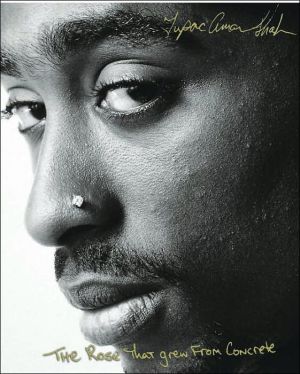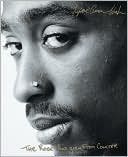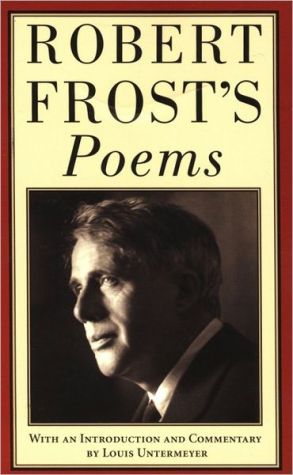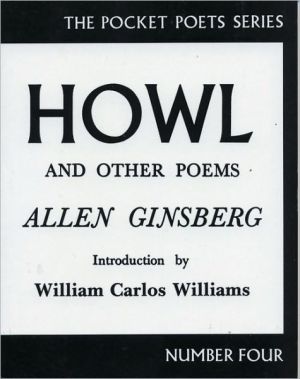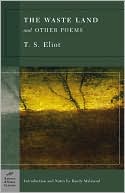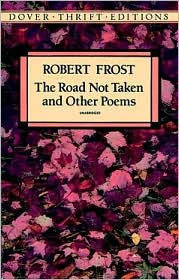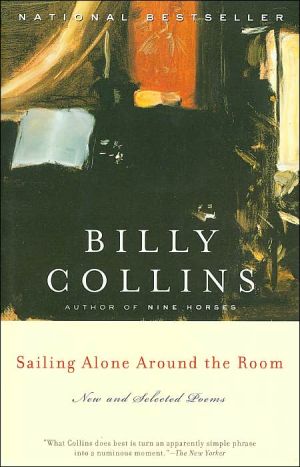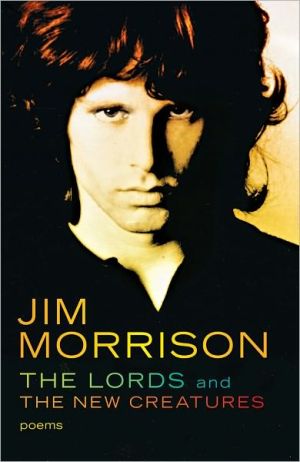The Rose That Grew from Concrete
His talent was unbounded, a raw force that commanded attention and respect.\ His death was tragic -- a violent homage to the power of his voice.\ His legacy is indomitable -- remaining vibrant and alive.\ Here now, newly discovered, are Tupac's most honest and intimate thoughts conveyed through the pure art of poetry -- a mirror into his enigmatic life and its many contradictions.\ Written in his own hand at the age of nineteen, they embrace his spirit, his energy...and his ultimate message...
Search in google:
His talent was unbounded -- a raw force that commanded attention and respect. His death was tragic -- a violent homage to the power of his voice. His legacy is indomitable -- as vibrant and alive today as it has ever been. Tupac Shakur's most intimate and honest thoughts were uncovered only after his death with the instant classic The Rose That Grew from Concrete. For the first time in paperback, this collection of deeply personal poetry is a mirror into the legendary artist's enigmatic world and its many contradictions. Written in his own hand from the time he was nineteen, these seventy-two poems embrace his spirit, his energy -- and his ultimate message of hope.VOYAWhen nineteen-year-old Shakur joined the writing circle of Leila Steinberg, as she relates in her introduction to this collection, he became its leading force. The young rapper-to-be wrote love poems, distressed poems, depressed poems. There is passion here, including anger, but this poetry is far more gentle, albeit less powerful, than the rap lyrics that would make him infamous. Each poem is presented in his handwriting as well as in typeface, an engaging device. Poems such as "What Can I Offer Her" and "Government Assistance or My Soul" bemoan unemployment, and the title poem celebrates growth in spite of obstacles. The love poetry is gentle; the theme is often responsibility. The misogynist of some of the rap lyrics does not appear on these pages, and the object of the writer's affections is not always female. This book will fly off the shelves. Many teens will see themselves as future poets/lyricists; from gangsta rap to Paul Anka, it is all poetry. Nevertheless Shakur's rap lyrics, none included here, are much more effective poetry. However one might wish to clean up both their words and intent, they sing from a place that many are, mercifully, unlikely to experience. Was Shakur a dangerous gangsta wannabe who precipitated his own murder by attacking a Crip, or was he a misunderstood but talented poet and performer—or was he both? This slim volume of Shakur's youthful poems, collected by his manager, Steinberg, and published with the permission of the rapper's mother, will not answer the question. Nevertheless it might allow the reader to see the hopelessness that the author felt as a young black male, a poet who thought he had to be tough to survive and whose posturing killedhim. It is strongly recommended that librarians and teachers read his rap lyrics if they have not already done so. Shakur's lyrics are currently posted on the Internet at http://www.tupac.net/lyrics. After reading this poetry collection, the raps are not only frightening, they are also sad. To paraphrase the poster from the United Negro College Fund, a mind is, indeed, a terrible thing to waste. Illus. Photos. VOYA CODES: 3Q 5P J S (Readable without serious defects; Every YA (who reads) was dying to read it yesterday; Junior High, defined as grades 7 to 9; Senior High, defined as grades 10 to 12). 1999, Pocket Books/S & S, 151p, $20. Ages 13 to 18. Reviewer: Lynne Hawkins SOURCE: VOYA, October 2000 (Vol. 23, No. 4)
From Section One: The Rose That Grew From Concrete\ The Rose That Grew from Concrete\ Autobiographical\ \ Did u hear about the rose that grew from a crack\ in the concrete\ Proving nature's laws wrong it learned 2 walk\ without having feet\ Funny it seems but by keeping its dreams\ it learned 2 breathe fresh air\ Long live the rose that grew from concrete\ when no one else even cared!\ In the Depths of Solitude\ Dedicated 2 Me\ \ I exist in the depths of solitude\ pondering my true goal\ Trying 2 find peace of mind\ and still preserve my soul\ CONSTANTLY yearning 2 be accepted\ and from all receive respect\ Never compromising but sometimes risky\ and that is my only regret\ A young heart with an old soul\ how can there be peace\ How can I be in the depths of solitude\ when there R 2 inside of me\ This Duo within me causes\ the perfect opportunity\ 2 learn and live twice as fast\ as those who accept simplicity\ Sometimes I Cry\ \ Sometimes when I'm alone\ I cry because I'm on my own\ The tears I cry R bitter and warm\ They flow with life but take no form\ I cry because my heart is torn\ and I find it difficult 2 carry on\ If I had an ear 2 confide in\ I would cry among my treasured friends\ But who do u know that stops that long\ to help another carry on\ The world moves fast and it would rather pass u by\ than 2 stop and c what makes u cry\ It's painful and sad and sometimes I cry\ and no one cares about why.\ Under the Skies Above\ After the Miscarriage\ \ My child is out there somewhere\ under the skies above\ waiting anxiously 4 u and me\ 2 bless it with our love\ A part of me a part of u\ and a part of this love we share\ will protect my unborn child\ who lives dormant out there somewhere\ Sometimes in my dreams\ I imagine what it would be like\ How could I properly guide him\ when even I don't know what's right\ Whether he is born in wealth or poverty\ there will be no deficiency in love\ I welcome this gift of life\ given from GOD under the skies above\ Copyright © 1999 by The Estate of Tupac Shakur
ContentsAcknowledgmentsPreface by Afeni ShakurForeword: Tupac, C U in Heaven by Nikki GiovanniIntroduction by Leila SteinbergTHE ROSE THAT GREW FROM CONCRETEThe Rose That Grew from ConcreteIn the Depths of SolitudeSometimes I CryUnder the Skies AboveLife Through My EyesWhen Ure Heart Turns ColdUntitledThe Eternal LamentOnly 4 the RighteousWhat of Fame?The Shining Star Within!Starry NightIf I FailWhat Is It That I Search 4The Fear in the Heart of a ManGodNOTHING CAN COME BETWEEN USNothing Can Come Between UsMy Dearest One!!If There Be Pain...Things That Make Hearts BreakBlack WomanAnd Still I Love UThe Mutual Heartache?1st ImpressionsA Love UnspokenForever and TodayWhen I Do Kiss UCarmencita of the Bronx!UntitledLove Is Just ComplicatedElizabethI Know My Heart Has Lied BeforeFrom First Glance1 for AprilWife 4 LifeTears from a StarMarch 1st — The Day After AprilWhy Must U Be UnfaithfulThe Power of a SmileGenesis (The Rebirth of My Heart)Love Within a StormWhat Can I Offer Her?JadaThe Tears in Cupid's EyesCupid's Smile IIWhat I See!In the Midst of Passion2 People with 1 WishHours Pass ByJUST A BREATH OF FREEDOMJust a Breath of FreedomFor Mrs. HawkinsThe Sun and the Moon"Fallen Star"Government Assistance or My SoulFamily TreeOr My SoulWhen Ure Hero FallsUntitled"U R Ripping Us Apart!!!"A River That Flows ForeverCan U C the Pride in the PantherTears of a Teenage Mother"Where There Is a Will...."LIBERTY NEEDS GLASSESLibertyNeeds GlassesHow Can We Be FreeThe PromiseAnd 2morrowNo-WinThe Unanswerable?NightmaresSo I Say GOODBYEIn the Event of My Demise
\ VOYAWhen nineteen-year-old Shakur joined the writing circle of Leila Steinberg, as she relates in her introduction to this collection, he became its leading force. The young rapper-to-be wrote love poems, distressed poems, depressed poems. There is passion here, including anger, but this poetry is far more gentle, albeit less powerful, than the rap lyrics that would make him infamous. Each poem is presented in his handwriting as well as in typeface, an engaging device. Poems such as "What Can I Offer Her" and "Government Assistance or My Soul" bemoan unemployment, and the title poem celebrates growth in spite of obstacles. The love poetry is gentle; the theme is often responsibility. The misogynist of some of the rap lyrics does not appear on these pages, and the object of the writer's affections is not always female. This book will fly off the shelves. Many teens will see themselves as future poets/lyricists; from gangsta rap to Paul Anka, it is all poetry. Nevertheless Shakur's rap lyrics, none included here, are much more effective poetry. However one might wish to clean up both their words and intent, they sing from a place that many are, mercifully, unlikely to experience. Was Shakur a dangerous gangsta wannabe who precipitated his own murder by attacking a Crip, or was he a misunderstood but talented poet and performer—or was he both? This slim volume of Shakur's youthful poems, collected by his manager, Steinberg, and published with the permission of the rapper's mother, will not answer the question. Nevertheless it might allow the reader to see the hopelessness that the author felt as a young black male, a poet who thought he had to be tough to survive and whose posturing killedhim. It is strongly recommended that librarians and teachers read his rap lyrics if they have not already done so. Shakur's lyrics are currently posted on the Internet at http://www.tupac.net/lyrics. After reading this poetry collection, the raps are not only frightening, they are also sad. To paraphrase the poster from the United Negro College Fund, a mind is, indeed, a terrible thing to waste. Illus. Photos. VOYA CODES: 3Q 5P J S (Readable without serious defects; Every YA (who reads) was dying to read it yesterday; Junior High, defined as grades 7 to 9; Senior High, defined as grades 10 to 12). 1999, Pocket Books/S & S, 151p, $20. Ages 13 to 18. Reviewer: Lynne Hawkins \ SOURCE: VOYA, October 2000 (Vol. 23, No. 4)\ \ \ \ \ \ School Library JournalYA-A collection of poetry written by the rapper between 1989 and 1991, before he became famous. The poems are passionate, sometimes angry, and often compelling. Selections are reproduced from the originals in Shakur's handwriting, personalized by distinctive spelling and the use of ideographs (a drawing of an eye for I, etc.), and complete with scratch outs and corrections. With the exception of "In the Event of My Demise," all of the pieces are accompanied by typed text, which leaves his spelling intact. Some poems are also accompanied by his drawings. A few black-and-white photographs appear throughout. A preface by Shakur's mother, a foreword by Nikki Giovanni, and an introduction by his manager, Leila Steinburg, in whose writing group the poems were written, complete this unique volume.-Susan Salpini, Purcellville Library, VA Copyright 2000 Cahners Business Information.\|\ \
